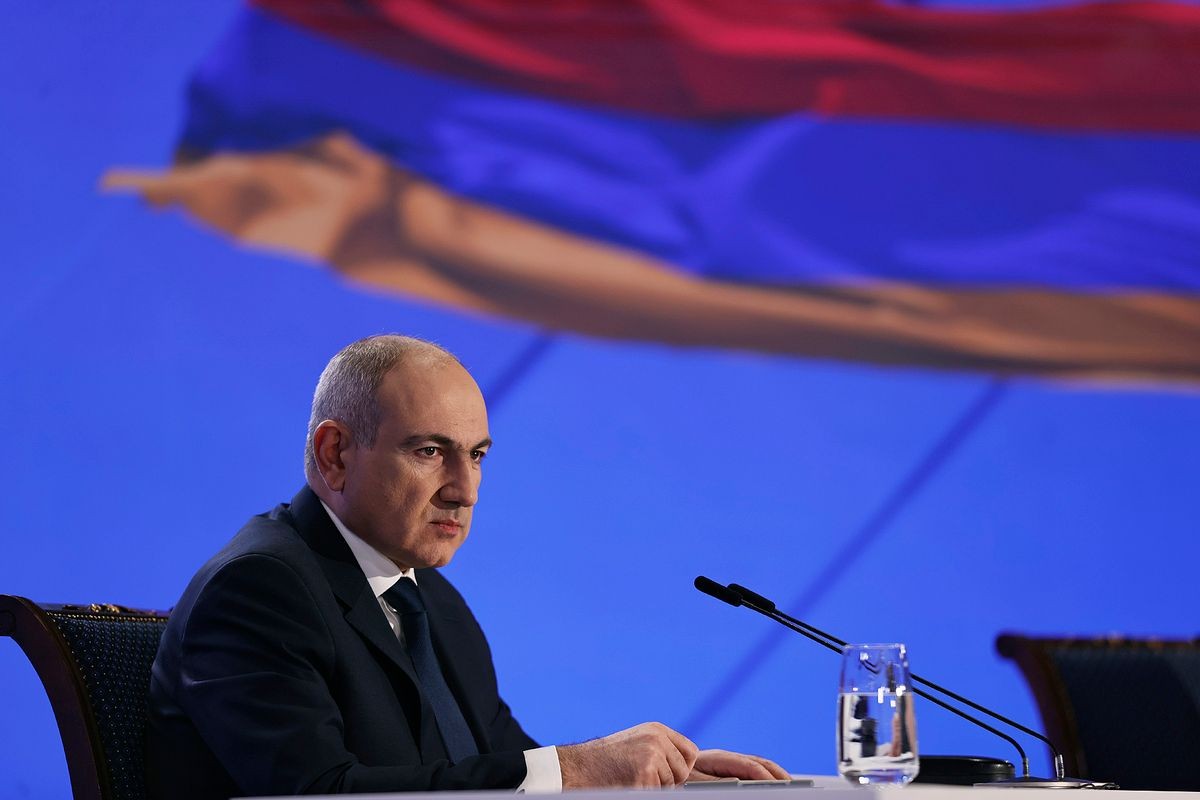
Prime Minister Nikol Pashinyan has suggested that the loss of Nagorno-Karabakh enabled Armenia to gain more sovereignty and strengthen its independence, citing the withdrawal of Russian border guards from all Armenian checkpoints as an example.
The statements were made public after Pashinyan published roughly nine minutes of video from his closed-door meeting at Yerevan State University earlier this week.
Pashinyan used the example of border guards to prove his claim that as a result of the Second Nagorno-Karabakh War in 2020, Armenians lost ‘a part of the homeland placed on one side of the scale’, but instead gained a state that is ‘more sovereign, more independent, and more self-reliant’
As of 1 March, all border checkpoints across Armenia have been exclusively operated by Armenian border troops, Pashinyan said.
Starting in 2024, Armenian border troops took control over all checkpoints along the Armenian border, including at the Yerevan Zvartnots Airport. Previously, Russian border guards were stationed at the airport, with Russians still maintaining their presence along the border with Turkey and Iran.

Saying that it might sound very logical and that there may be nothing surprising or worth ‘bragging’ about — that Armenian troops control the border checkpoints of the Armenian independent state — he emphasised, however, that he only could make the relevant decision in 2024, despite him being ‘much stronger politically’ before the 2020 war.
‘I couldn’t have made that decision in 2018, 2019, 2020. I couldn’t. I simply couldn’t. It was even very difficult to imagine that such a thing could happen’, Pashinyan said, adding that in 2024 ‘I could, and I made that decision’.
Pashinyan further claimed that one of his most important narratives since the 2018 Velvet Revolution, which brought him to power, has been breaking Armenia free from historical cycles, ‘where, in the context of the collapse of empires, we gain statehood, but during the consolidation of empires, we lose it’.
In an apparent reference to Armenia’s defeat in the Nagorno-Karabakh conflict, Pashinyan insisted that ‘the history of the previous period is not a history of loss’, instead it was a history of ‘achievement’, giving Armenians a chance to have a lasting state.
‘If we agree to limit ourselves and thereby limit others, we will have a lasting state that we can pass down from generation to generation; if not, we will lose our statehood now’, Pashinyan concluded, without elaborating what he meant by said limitations.











